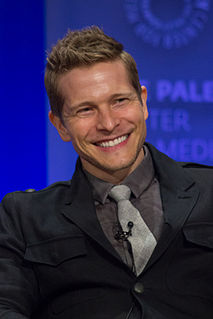A Quote by Karl Popper
The history of science, like the history of all human ideas, is a history of irresponsible dreams, of obstinacy, and of error. But science is one of the very few human activities-perhaps the only one-in which errors are systematically criticized and fairly often, in time, corrected. This is why we can say that, in science, we often learn from our mistakes, and why we can speak clearly and sensibly about making progress there. In most other fields of human endeavour there is change, but rarely progress ... And in most fields we do not even know how to evaluate change.
Quote Topics
About
Activities
Change
Clearly
Criticized
Dreams
Endeavour
Error
Errors
Evaluate
Even
Fairly
Few
Fields
History
History Of Science
How
Human
Ideas
Irresponsible
Know
Know How
Learn
Like
Making
Mistakes
Most
Obstinacy
Often
Only
Other
Our
Perhaps
Progress
Rarely
Say
Science
Speak
The History Of
Time
Very
Which
Why
Related Quotes
Science fiction is the most important literature in the history of the world, because it's the history of ideas, the history of our civilization birthing itself. ...Science fiction is central to everything we've ever done, and people who make fun of science fiction writers don't know what they're talking about.
Progress is the exploration of our own error. Evolution is a consolidation of what have always begun as errors. And errors are of two kinds: errors that turn out to be true and errors that turn out to be false (which are most of them). But they both have the same character of being an imaginative speculation. I say all this because I want very much to talk about the human side of discovery and progress, and it seems to me terribly important to say this in an age in which most non-scientists are feeling a kind of loss of nerve.
The whole point of science is that most of it is uncertain. That's why science is exciting--because we don't know. Science is all about things we don't understand. The public, of course, imagines science is just a set of facts. But it's not. Science is a process of exploring, which is always partial. We explore, and we find out things that we understand. We find out things we thought we understood were wrong. That's how it makes progress.
I feel very strongly that history is about everything. It isn't just about politics or the military or social issues. If art, music, engineering, science, medicine, finance, the world of architecture and technology - if those are left out, then you're not getting a full sense of the human condition. History is human and we human beings are involved in all kinds of things and that's part of our humanity.
Science is the only news. When you scan a news portal or magazine, all the human interest stuff is the same old he-said-she-said, the politics and economics the same cyclical dramas, the fashions a pathetic illusion of newness; even the technology is predictable if you know the science behind it. Human nature doesn't change much; science does, and the change accrues, altering the world irreversibly
One can truly say that the irresistible progress of natural science since the time of Galileo has made its first halt before the study of the higher parts of the brain, the organ of the most complicated relations of the animal to the external world. And it seems, and not without reason, that now is the really critical moment for natural science; for the brain, in its highest complexity-the human brain-which created and creates natural science, itself becomes the object of this science.
In general, I'm in support of promoting art and science in public schools. I think music and science are probably the most important factors for the human brain developing. Even more so than any other fields, because music covers mathematics, cognitive reasoning, motor skills, coordination, like, it's kind of everything.
The steep ride up the and down the energy curve is the most abnormal thing that has ever happened in human history. Most of human history is a no-growth situation. Our culture is built on growth and that phase of human history is almost over and we are not prepared for it. Our biggest problem is not the end of our resources. That will be gradual. Our biggest problem is a cultural problem. We don't know how to cope with it.
I define science fiction as the art of the possible. Fantasy is the art of the impossible. Science fiction, again, is the history of ideas, and they're always ideas that work themselves out and become real and happen in the world. And fantasy comes along and says, 'We're going to break all the laws of physics.' ... Most people don't realize it, but the series of films which have made more money than any other series of films in the history of the universe is the James Bond series. They're all science fiction, too - romantic, adventurous, frivolous, fantastic science fiction!






































